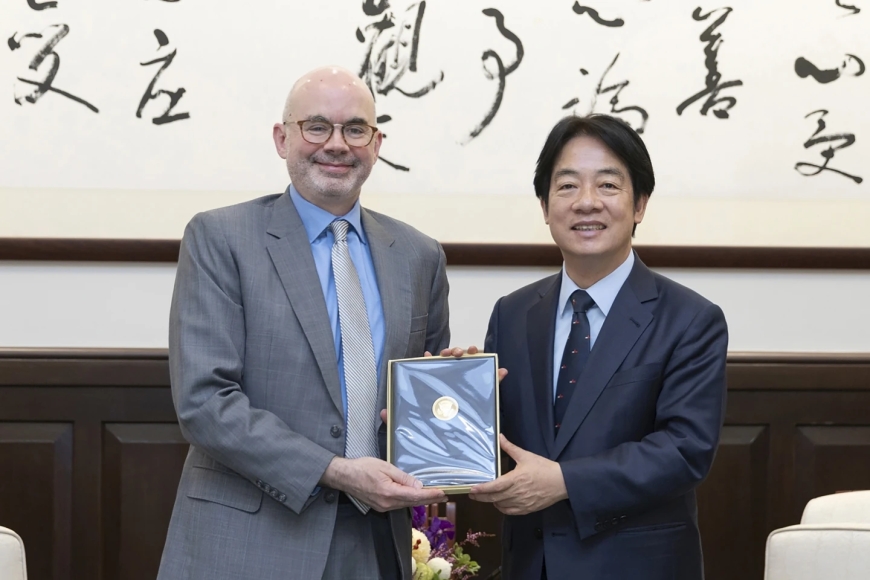U.S. Pledges Enhanced Support for Taiwan Amid Rising Tensions with China
Raymond Greene, newly appointed as the Director of the American Institute in Taiwan, affirmed Washington's commitment to bolstering Taiwan's defense capabilities amidst escalating military tensions with China. In his inaugural meeting with Taiwanese President Lai Ching-te on Wednesday, Greene emphasized the United States' steadfast support for Taiwan's sovereignty and security amid growing threats from Beijing.

Raymond Greene, newly appointed as the Director of the American Institute in Taiwan, affirmed Washington's commitment to bolstering Taiwan's defense capabilities amidst escalating military tensions with China. In his inaugural meeting with Taiwanese President Lai Ching-te on Wednesday, Greene emphasized the United States' steadfast support for Taiwan's sovereignty and security amid growing threats from Beijing.
"The U.S. stands firmly behind Taiwan's efforts to enhance its self-defense capabilities," Greene declared following the meeting. "We share common interests in fostering peace and stability across the Taiwan Strait."
Taiwan, a self-governed island of 23 million people, faces persistent challenges from China, which regards the island as a renegade province and has not ruled out the use of force to reclaim it. Recent maneuvers by Chinese military aircraft near Taiwan, including J-16 fighters and H-6 bombers, underscore China's assertive posture in the region.
Greene's assurances come at a critical juncture, with Taiwan's Defense Ministry reporting multiple Chinese military jets conducting drills in proximity to Taiwan's airspace. These exercises coincided with joint maneuvers involving China's Shandong aircraft carrier group in the Western Pacific.
Despite the absence of formal diplomatic recognition, the United States remains Taiwan's principal ally and is bound by legislation to support Taiwan's defense capabilities. Just weeks ago, the U.S. State Department approved a substantial arms sale to Taiwan, including missiles and drones valued at approximately $360 million. Additionally, the U.S. House of Representatives recently passed an $8 billion military aid package aimed at bolstering Taiwan's defenses.
President Lai reaffirmed Taiwan's commitment to maintaining stability in the region during his discussions with Greene, emphasizing the enduring partnership between Taiwan and the United States.
"Taiwan and the U.S. are steadfast partners dedicated to upholding regional peace and stability," President Lai stated.
In response to Greene's statements, Chinese authorities refrained from immediate comment, reflecting Beijing's longstanding opposition to any official dialogue with Taiwan's current administration, which it views as supportive of separatist tendencies.
The American Institute in Taiwan serves as a de facto embassy for U.S. interests on the island, mirroring Taiwan's Economic and Cultural Representative Office in the U.S. and similar facilities in other nations.
Since assuming office in May, President Lai has faced escalating pressure from Beijing, which perceives him as advocating for Taiwan's independence. Recent rhetoric from Chinese officials has escalated, with threats aimed at individuals supporting Taiwan's sovereignty.
In light of these developments, Taiwan has advised its citizens against travel to mainland China, Hong Kong, and Macao due to escalating tensions and security concerns.
The meeting between Greene and President Lai underscores the strategic importance of Taiwan in U.S. foreign policy, amidst heightened geopolitical tensions in the Asia-Pacific region.













































